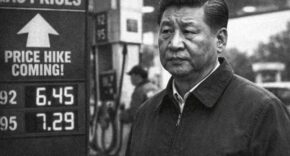Back in the days of Walter Cronkite, news had a simpler, more trusted face. With just three major networks and a few leading newspapers, most people in America received the same version of events. Consensus was the norm, and the limited number of sources left little room for doubt or division. Cronkite was dubbed “the most trusted man in America” not because he was flawless, but because there wasn’t much else competing for public trust.
Fast forward to the internet age, and we are bombarded by a chaotic swarm of tens of thousands of news sources, each vying for attention in an overcrowded market. As a result, trust in media has plummeted to a mere 36%. The term “fake news” has become a ubiquitous accusation, thrown by all sides of the political spectrum.
In theory, this explosion of voices should have led to a more vibrant and truth-seeking media landscape. Instead, it has created a deeply polarized environment where media outlets, motivated by clicks and ad revenue, cater to the narrow preferences of specific audiences. The result? Huge bubbles of political bias, where facts are tailored to fit pre-existing narratives, and truth becomes a casualty of the quest for profit. Commentary blends with news, and fiction easily slips into the mix.
Today’s news landscape is awash with misinformation, and discerning the truth often depends on one’s ideological leaning. This isn’t just an issue with fringe sites—mainstream outlets like CNN, Fox News, MSNBC, and The New York Times also find themselves enmeshed in this cycle of selective storytelling. The narrative is often less about uncovering truth than about influencing public opinion in favor of those who pay the most.
This environment of manipulation makes us susceptible to external and internal threats. We know foreign entities like Russia have meddled in our democratic processes, and there are suggestions that China has done even more, albeit more discreetly. But the more pervasive threats come from within—groups with deep pockets and clear agendas, from political action committees (PACs) to influential billionaires on both sides of the aisle.
Fact-checkers, meant to be the bulwark against misinformation, have lost credibility too. Their own biases often cloud their ability to act as neutral arbiters. Worse still are the calls for censorship, not to protect facts or ensure integrity, but to silence opposing views. Tech giants like Google, Facebook, Twitter, and others have increasingly played the role of censor, sometimes with the same authoritarian techniques they’ve perfected in more repressive countries.
A handful of unelected, unaccountable individuals and organizations can now steer public discourse, influencing everything from elections to global events. So, what’s the way forward? How do we transform a weakened media ecosystem into one that is robust and truth-oriented?
One thing is clear: the solution is not more government oversight. In February 2022, the FBI released a warning about “misleading narratives and conspiracy theories” as potential terrorism threats. The implications are alarming: imagine the FBI becoming the ultimate judge of what is real news and what is “fake,” backed by the power to criminalize certain narratives.
Instead of relying on government intervention, why not turn to capitalism to solve this problem? Picture a system where journalists are rewarded not just for attracting eyeballs, but for their commitment to truth and accuracy. What if there were a way to track a writer’s integrity—penalizing them for manipulating facts, misrepresenting opinions as news, or using logical fallacies to mislead readers? These reputations could then influence their reach, impacting what readers see based on the reliability of the authors.
Holding writers accountable could fundamentally change the incentives in journalism. Major networks can withstand criticism, but individual journalists, whose careers depend on their credibility, might think twice before distorting the truth. Imagine a scenario where companies emerge that profit by amplifying trustworthy voices and marginalizing those who repeatedly mislead.
This isn’t a simple fix, but it’s a path worth exploring. Leveraging capitalism to restore integrity in journalism might just be the most effective way to combat the crisis of trust in media today. If businesses are indeed smarter than government, then it’s time for the market to step up and do what regulation cannot—bring honesty back to news.
What are your thoughts? Could this approach work?










